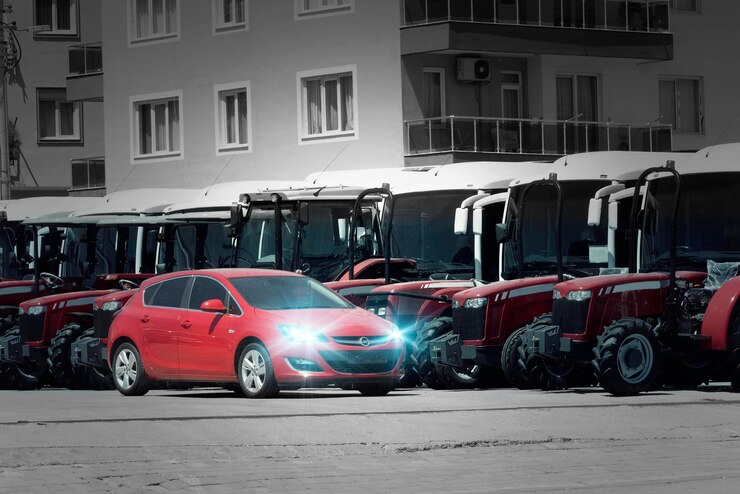The object of the present study is the Chevrolet Cruze, a compact car launched in 2008 and quickly regarded as a cheap, fuel-efficient car with an attractive design. Competing with the Honda Civic and Toyota Corolla, as well as some others, the Cruze provided an American car in the compact sedan segment. However, most customers are unaware that not all model years of the Chevrolet Cruze are as reliable as the other. Some years are considered reputable because of their reliability, performance, features and specifications, and power train on the other hand, some models experience mechanical and electrical problems that could cause some headaches in the future.
Thanks to this detailed article, you will discover the good and the bad years of the Chevrolet Cruze, or in other words, which year models should stay away from.
Best Chevrolet Cruze Years
The Chevrolet Cruze’s track record has been on the rise and, at other times, has been unsteady, yet certain models have been reported to have quality features, fuel economy, and being well equipped. The best years of the Cruze demonstrate advancements in design, driving ability, and features and represent great value to the driver.
From sophisticated modifications of engines to such up-to-date safety gadgets, these models are affordable and reliable. If someone is looking for a dependable compact car, Cruze’s better-year models are worth the ride.
2013 Chevrolet Cruze
The Chevrolet Cruze model of the year 2013 is also reliable and is one of the better compact cars for best MPG. It was in the first generation and could have improvements made after manufacturing this model.
The key features of the Chevrolet Cruze include 1.4L turbocharged and fair gasoline efficiency provided to the standard car models. The Inner features of the car are stylish and plenty of performance infotainment inside the interior.
This car has reasonable safety ratings with the NHTSA and IIHS.
Why It’s a Top Pick
Regarding 2013, model One had a lot of value for the amount of money they spent to own it because it is very responsive as a car. The extra rating that was given by the buyers was almost perfect compared to previous years.

2016 Chevrolet Cruze
Nevertheless, the second generation was created in the 2016 Cruze, which gave the Cruze car a new, unique, and better design, performance, and technology.
They also incorporate a contemporary outlook into the outer look of a building. There is a new 1.4L turbo engine and compared to the previous engine, the fuel economy has also been bettered. Other safety and technological enhancements are; Apple car play and Android Auto.
Why It’s a Top Pick
The extended 2016 Cruze model configuration and enhanced vehicle dynamics make the Cruze one of the most innovative compact sedans.

2019 Chevrolet Cruze
The 2019 Cruze was slightly lucky since it was one of the last Cruze models produced in the United States and therefore benefited from improvements made on the nameplate through the years.
Moreover, a little enhancement in designs and far better infotainment systems fuel efficiency, especially concerning the diesel type of an engine, are the best features in this model. Lesser reliability complaints than before the earlier years.
Why It’s a Top Pick
New basic, simple details and more powerful dependability put the 2019 Cruze among the market leaders as a used subcompact car.
The Chevrolet Cruze Years That You Should Avoid
Not all Chevrolet Cruze models have lived up to their reputation for reliability and performance. Certain years are plagued with recurring issues like engine problems, coolant system failures, and costly repairs. Knowing which Chevrolet Cruze years to avoid can save you from unnecessary headaches and ensure a better ownership experience.
2011 Chevrolet Cruze
The first year of Cruze in the United States was full of reliability issues and recalls for the 2011 model.
Key problems users report include overheating, which emanates from flaws and folds in the coolant system. In addition, issues with a 1.4L turbo engine include oil leaks and piston cracks.
According to the report, some units had failed to complete them.
Why Avoid
Though the first-generation Cruze has a lot of possibilities, many early production models received a lot of flake in the 2011 model year, and costly dealing is associated with it.
2012 Chevrolet Cruze
The 2012 model was not very different from the Cruze of 2011 model, which mainly had enormous issues in the area of reliability.
The erratic leakage of coolant caused the engine to overheat, electrical issues Inc infotainment, and dashboard warning signs are the apparent issues in this model. Making assignments and allegations of high rate of oil consumption are in addition to the above problems.
Why to Avoid
Is the model Cruze of 2012 different, yes the Cruze model is notarized for specific problems mainly concerning maintenance, for instance, the engine and cooling system.

2014 Chevrolet Cruze
The year 2014 Cruze also had some flaws not as catastrophic as earlier models of Cruze especially the 2011 and 2012 models; a majority of problems were about its diesel version.
Key problems in this model are difficulties that arise with the turbochargers of diesel engine models. This provides critiques on issues bearing on the functioning of the DEF (diesel exhaust fluid) system. Furthermore, some models dealt with transmissions as well as electrical systems.
Why to Avoid
If you’re not purchasing a gasoline model with a raft of service history, the 2014 Cruze can be expensive.
Common problems with the Chevrolet Cruze Are
Particularly, when it comes to the Chevrolet Cruze, a car model that is liked by many because of its low price and good fuel consumption, there are some rather typical objections to it.
These include cases like coolant system leakage, consumption of engine oil, and transmission failures that have been complained about by the owners. Awareness of these typical issues will assist any prospective customer in avoiding some of these pitfalls and properly maintaining the automobile for less problematic usage.
Coolant System Issues
Some common complaints noted in Cruze models relate to the hoses or water pumps, which cause coolant leakage, more so for those assembled earlier. This makes the engine overheat and as a result, there are a lot of complications as we see it alongside the engine.
Engine Oil Leaks
Major issues related to the model’s Cruze with a 1.4L turbocharged engine, including oil leaks within the valve cover and another gasket.
Transmission Failures
Some years ago, the Cruze came to the market with complaints that the transmission could be sluggish, jerky or fail.
Diesel Engine Challenges
But even better fuel efficiency, which characterizes diesel versions, there were issues with turbocompressor reliability and failures of records of Selective Catalytic Reduction (SCR) equipped with diesel exhaust fluid (DEF).
Questions? We Have Answers
Which year is the best year for the Chevrolet Cruze model?
Specifically, significant concerns with relation to the Chevrolet Cruze problem involve the 2011,2012 and 2014 models as a result of issues with the coolant system, the life cycle of the cruiser’s engine, and problems with transmissions.
How long Chevrole Cruze last?
The car model Chevrolet Cruze, can even cover up to 200000-250000 miles if the car is well maintained.
Conclusion
There has been variability in sales of the Chevrolet Cruze car model has experienced some rise and dip in its sales. One should go for year models such as 2013, 2016, and 2019 Cruze because they offer long-lasting service, efficiency and new-generation technology.
On the other hand, I recommend you not to buy 2011,2012 and 2014 models because the engine, cooling system, and transmission commonly experience issues.
A lot of time must therefore be spent researching, the vehicle should be taken for a road test before it is bought, and the past maintenance history of the used Chevrolet Cruze must be established. If one just buys a 2013 model, one will have all the advanced characteristics of this compact vehicle without a high probability of getting stuck with high repair costs.
